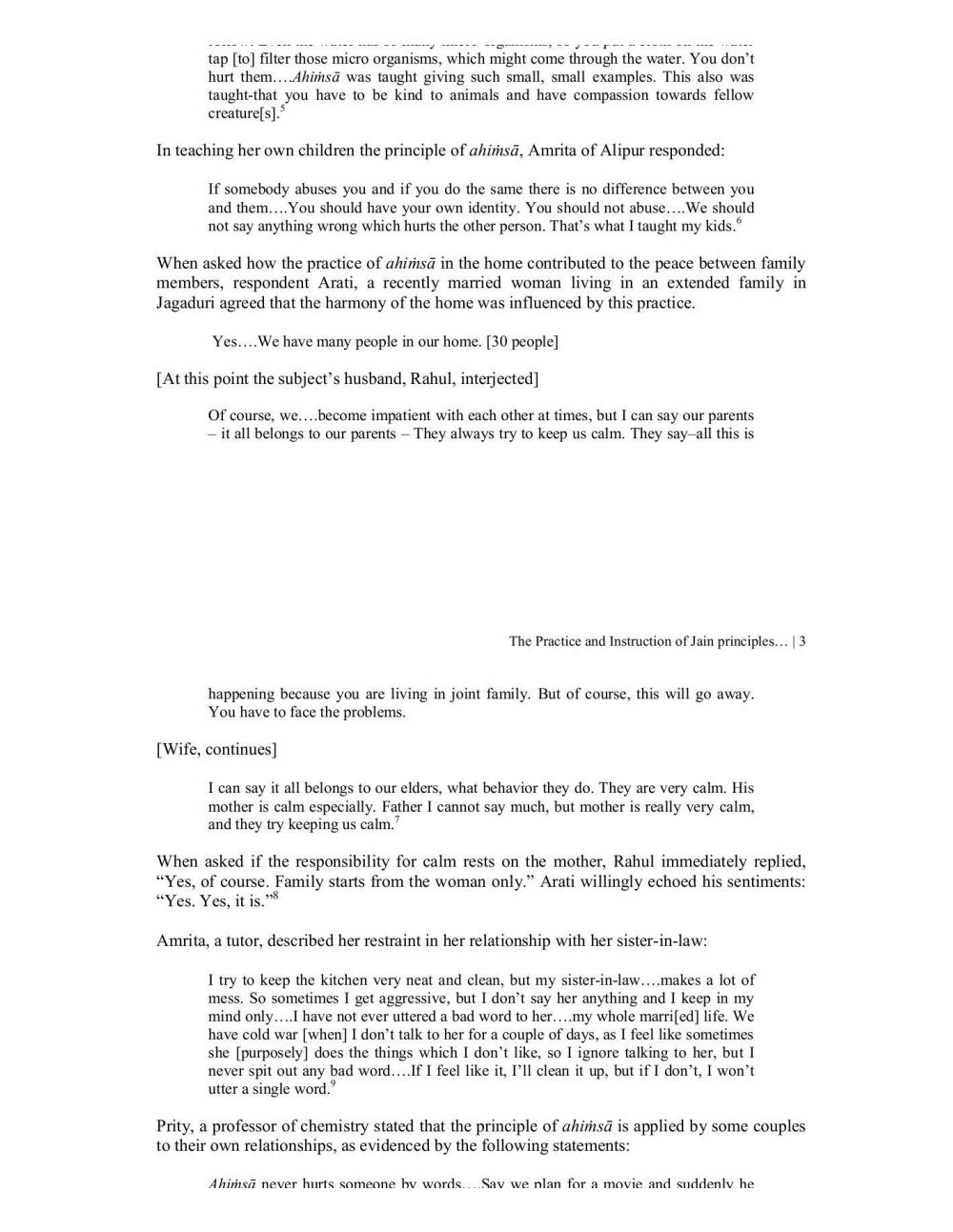________________
tap [to] filter those micro organisms, which might come through the water. You don't hurt them... Ahimsā was taught giving such small, small examples. This also was taught that you have to be kind to animals and have compassion towards fellow creature[s]."
In teaching her own children the principle of ahimsā, Amrita of Alipur responded:
If somebody abuses you and if you do the same there is no difference between you and them.... You should have your own identity. You should not abuse....We should not say anything wrong which hurts the other person. That's what I taught my kids.
When asked how the practice of ahimsā in the home contributed to the peace between family members, respondent Arati, a recently married woman living in an extended family in Jagaduri agreed that the harmony of the home was influenced by this practice.
Yes....We have many people in our home. [30 people]
[At this point the subject's husband, Rahul, interjected]
Of course, we....become impatient with each other at times, but I can say our parents - it all belongs to our parents - They always try to keep us calm. They say-all this is
The Practice and Instruction of Jain principles... 13
happening because you are living in joint family. But of course, this will go away. You have to face the problems.
[Wife, continues]
I can say it all belongs to our elders, what behavior they do. They are very calm. His mother is calm especially. Father I cannot say much, but mother is really very calm, and they try keeping us calm.'
When asked if the responsibility for calm rests on the mother, Rahul immediately replied, "Yes, of course. Family starts from the woman only." Arati willingly echoed his sentiments: "Yes. Yes, it is."
Amrita, a tutor, described her restraint in her relationship with her sister-in-law:
I try to keep the kitchen very neat and clean, but my sister-in-law....makes a lot of mess. So sometimes I get aggressive, but I don't say her anything and I keep in my mind only....I have not ever uttered a bad word to her....my whole marri[ed] life. We have cold war (when I don't talk to her for a couple of days, as I feel like sometimes she purposely does the things which I don't like, so I ignore talking to her, but I never spit out any bad word.... If I feel like it, I'll clean it up, but if I don't, I won't utter a single word."
Prity, a professor of chemistry stated that the principle of ahinsä is applied by some couples to their own relationships, as evidenced by the following statements:
Ahimsa never hurts someone by words. Sav we plan for a movie and suddenly he




